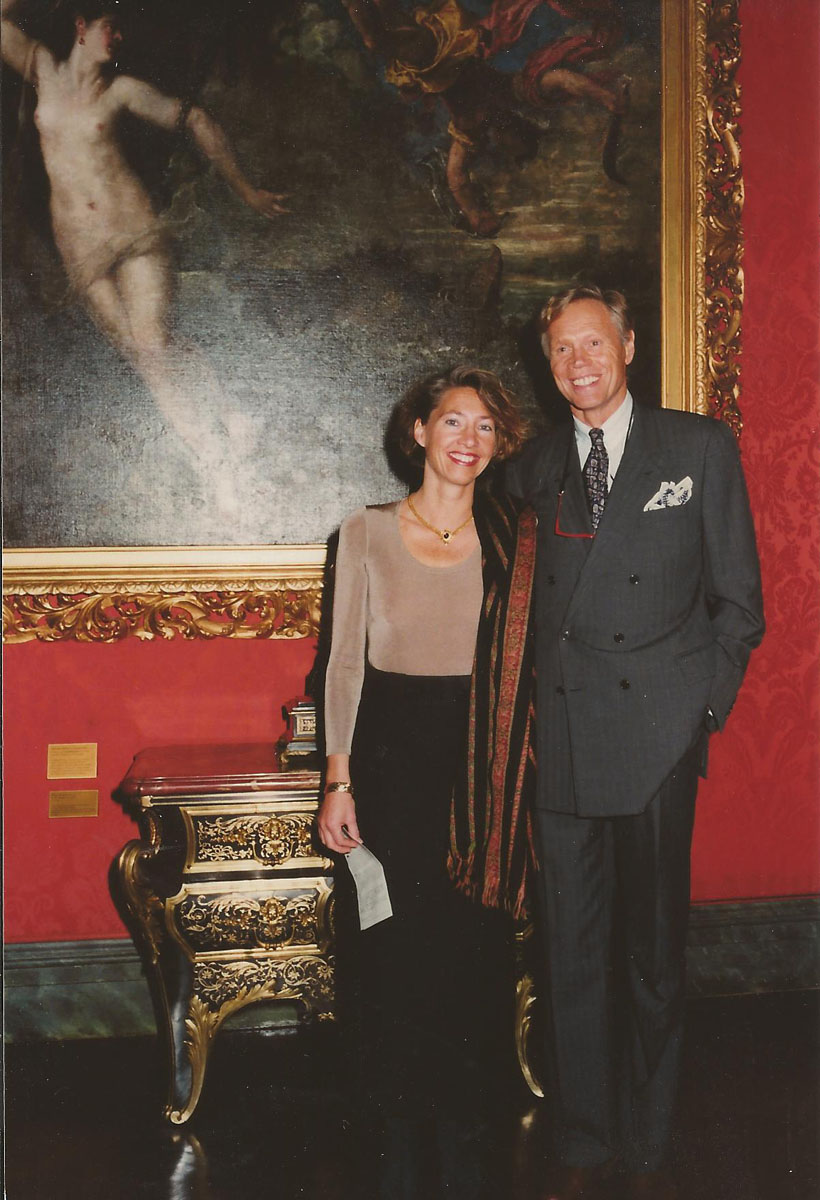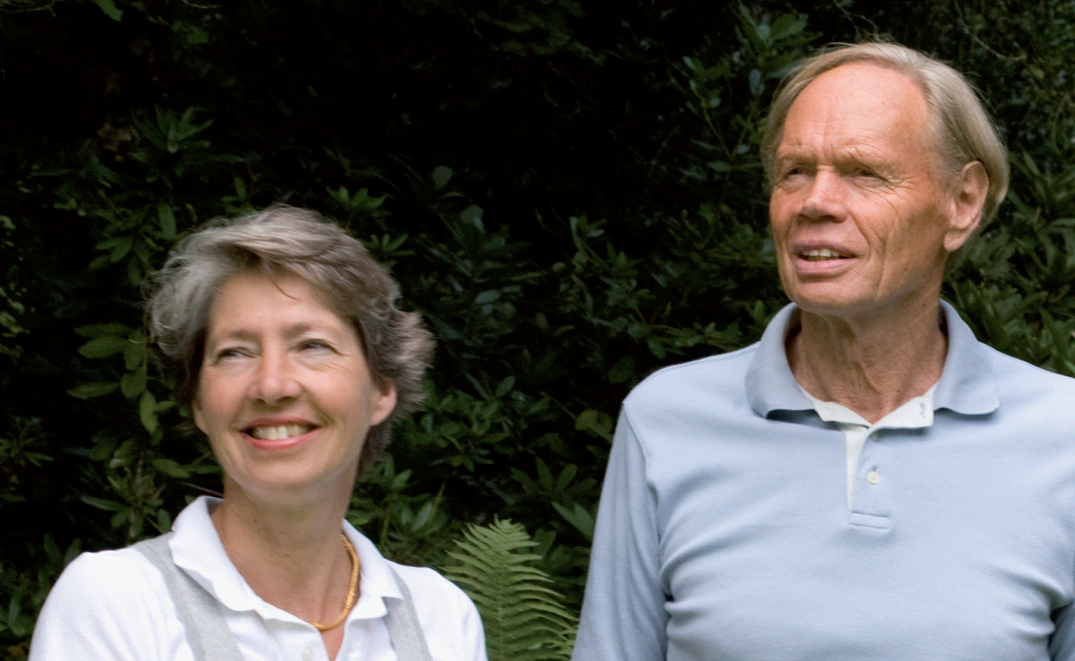advertisement

Tempora mutantur et nos mutamur in illis
Erik Greve and Caroline Greve-Geijssen

Times change and we change with them. When I started the International Glaucoma Review as Glaucoma Abstracts in 1984, the European Glaucoma Society was some five years old and the American Glaucoma Society did not yet exist. Times were different and above all communication was different: a limited number of computers and no internet. The printed information which started in 1440 in Germany by Gutenberg was the major source. Nevertheless, we were at the threshold of a new information era: the internet. Notwithstanding this evolutionary change, the IGR is still existing in print. Even more important, the information produced by the IGR is still read. The crucial value of the IGR has always been the selection of important papers and the expert comments. In this respect the IGR depends heavily on its Chief Editor who is responsible not only for the article selection process but also for the selection of experts for comments. The quality of the Chief Editor is the quality of the journal. I held the position of Chief Editor from 1984 till 2007: 23 years, and with great pleasure. It was my chance to critically review all glaucoma publications in order to compose the Editor's Selection; I was in continuous contact with the major glaucomatologists all over the world. I edited the journal with real pleasure and never hesitated to ornate the scientific text with excerpts of prose and poetry. After all, what is science without the viewpoints from the poets? It is the poet who reminds us that there is not only the realm of thought but also, and at least as important, the realm beyond thought: of wisdom. Wisdom draws from a different source. Even major milestones in science originate from a source that transcends thought. Wisdom is our connection with the divine. Humans have a tendency to clearly separate the world of science and art. This is an error: in the end it is the blending of the two that creates the evolutionary progress. Let me present to you in this medium for the last time lines from my favorite poems, the first from Hamlet by William Shakespeare and the second from If by Rudyard Kippling:
What a piece of work is man
How noble in reason
How infinite in faculties
In form and moving how express and admirable
In action how like an angel
In apprehension how like a god!
The beauty of the world, the paragon of animals - and yet,
to me, what is this quintessence of dust?
If you can dream - and not make dreams your master;
If you can think - and not make thoughts your aim;
If you can meet with Triumph and Disaster
And treat those two impostors just the same;
If you can bear to hear the truth you've spoken
Twisted by knaves to make a trap for fools,
Or watch the things you gave your life to, broken,
And stoop and build 'em up with worn-out tools.
The publication of the IGR has known several milestones. It was started as Glaucoma Abstracts for the EGS and then it became Glaucoma Abstracts International for the EGS, AGS and JGS. In 1998 the name was changed into International Glaucoma Review when six more societies joined: AOGS, ANZGIG, GSI, GSICO, LAGS, SAGS. In 2002 in became the journal for the WGA (then called AIGS). Since 2007 an online edition was started.
Beginning with the next issue, the IGR will now be published under the auspices of the WGA. Caroline - my wife, co-glaucomatologist and present Managing Editor - and I will bid farewell to the journal after almost thirty years. It has to be so. There is a time and place for everything. We will explore aspects of life that have held our interest for a longer period than the IGR. A new and fascinating life has started. We look back to the cooperation with hundreds of colleagues, glaucomatologists, over all those past years with an overwhelming warmness. This professional contact has often been transprofessional: a shared vision on living, working, learning, growing, giving which is called friendship.
Our gratitude goes to all of them and in particular to Bruce Shields and Yoshi Kitazawa, who acted as co-editor in the earlier years, and to Bob Weinreb, who took over as Chief Editor in 2007. We'll meet again, don't know where, don't know when. But we'll meet again some sunny day (from the song by Vera Lynn).

My time as Managing Editor of the IGR (Caroline) was characterized by my contacts with the Chief Editors and with the reviewers, most of whom I knew personally. It was the personal contact that made my work so enjoyable. Where the collection of abstracts for the journal is concerned, it may seem strange that instead of search machines such as Medline, glaucoma articles were identified manually from 26 major ophthalmology journals every trimester. The articles on glaucoma in other ophthalmology and non-ophthalmology journals came through literature searches. Although this was time consuming, I enjoyed the personal collection of glaucoma articles and flatter myself that it was a rather accurate search system and certainly a quick system to obtain recent publications on glaucoma.
It seems unbelievable on the one hand and quite gratifying, on the other hand, that so many of the extremely busy reviewers reacted positively to my requests for contributing to IGR time and time again. Here too, the personal touch is a vital aspect of the process of composing a good Editor's Selection. Of course the cooperation with the Chief Editors during these twelve years was very close. Looking back I see my involvement in the journal primarily as a person-to-person contact. That was the attractive part of it, next came administration, reminders, deadlines, etc. I worked with two Chief Editors. I felt like a musician who worked under two talented but very different conductors. One happened to be my husband; a marital managing and chief editor duet. It mostly produced a harmonious result. The other was Robert N. Weinreb, miles away and a new approach to many aspects of the journal. Nevertheless, our cooperation was smooth. I had a close and most friendly contact with the publishers Peter and Simon Bakker from Kugler Publications and with George Lambrou who faithfully classified 600 abstracts every three months within a week's time despite an overloaded schedule: σας ευχαριστώ.
I learned a lot. As Erik wrote, this episode in our lives has ended. It was good, no regrets. And I look forward to another of life's stages again.

